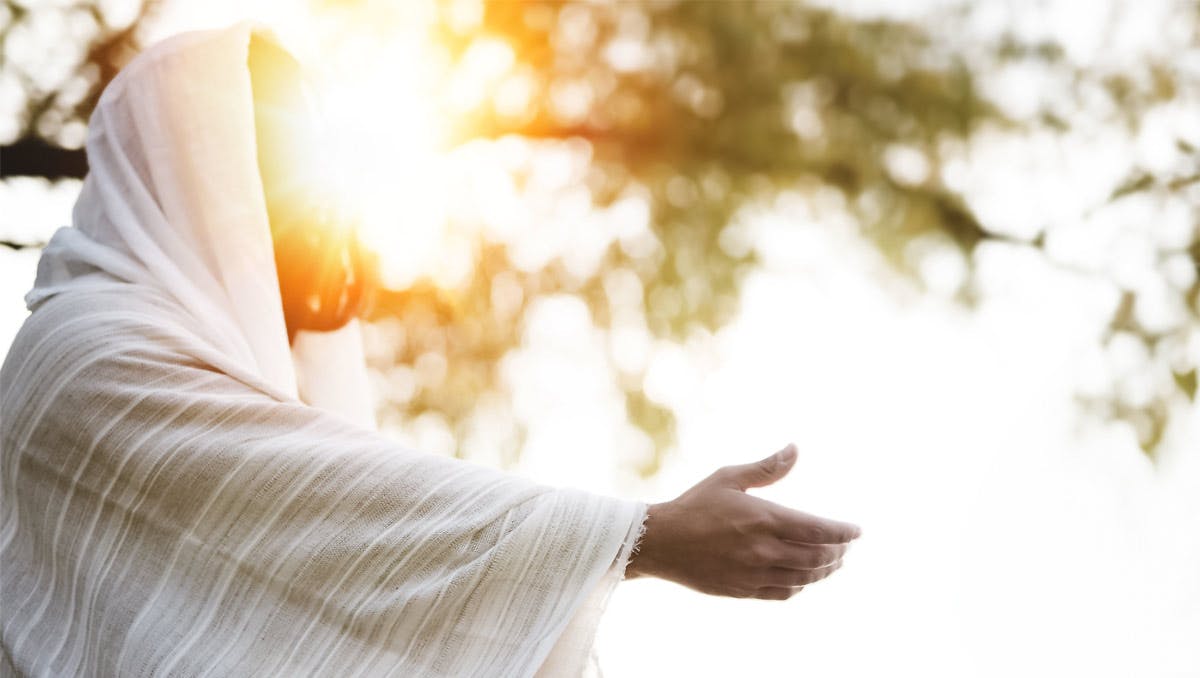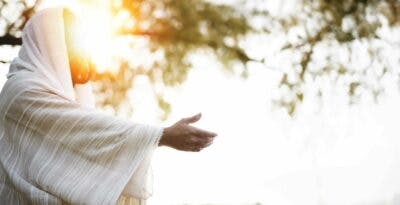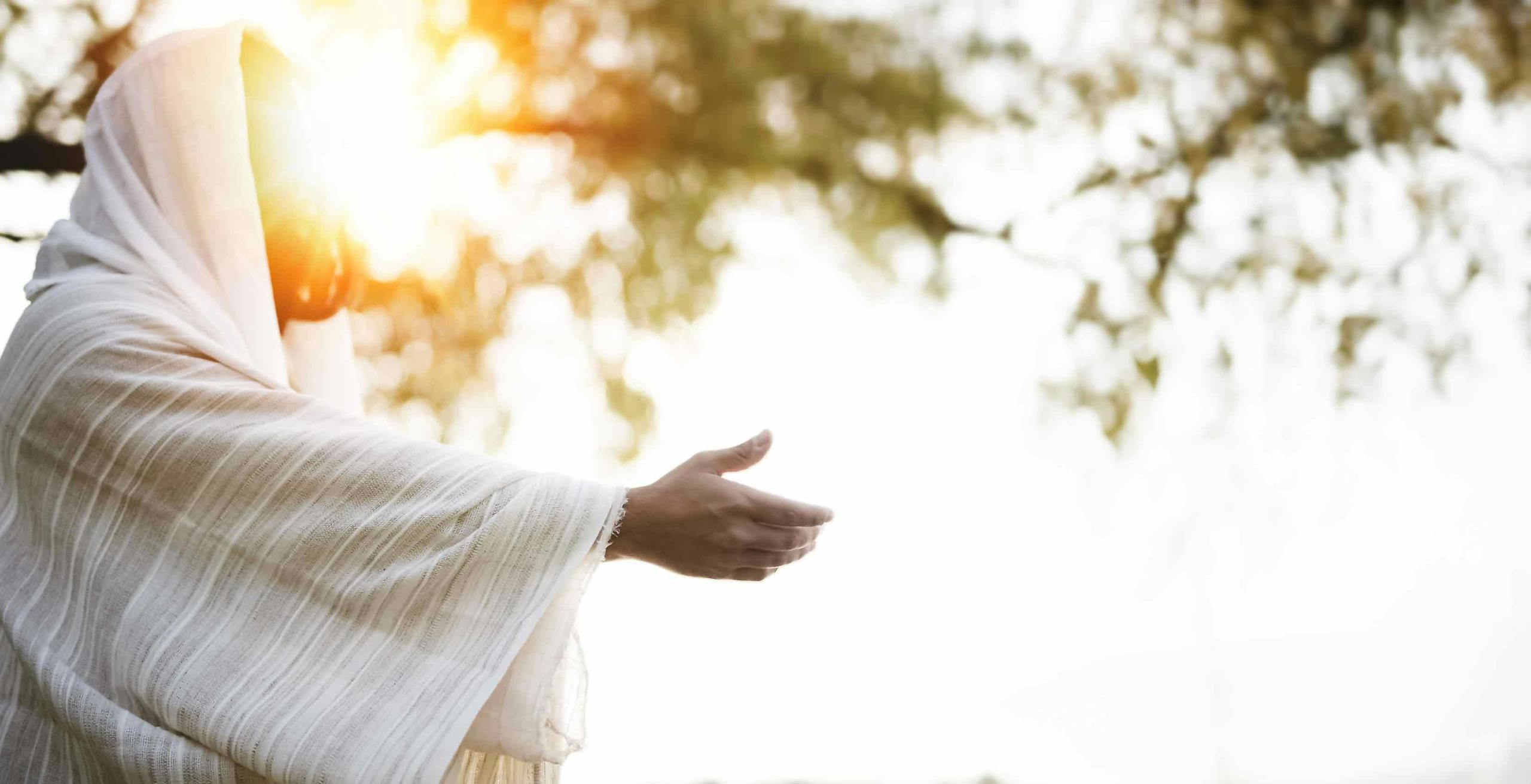
Is The Chosen’s Jesus Jewish?
How well does this popular show present the Jewishness of Jesus—and why does that matter?
by Laura Costea | April 10 2024
The Chosen’s opening scene begins with a father comforting his daughter. She’s seven or eight, afraid of the dark, and she can’t sleep. She snuggles up next to him outside their tent. “Say the words,” he says. “The words” aren’t words from the gospels or any other “Christian” material. They’re words from our prophet Isaiah.
It took me a while to get to this opening scene. I’ll admit it, for a full year, three of my friends nagged me to watch The Chosen before I finally gave in. It’s not that I was biased against the show (how could I be, when I’d never seen it?). It’s because I feel a little bit protective about both Jesus and my Jewishness. How could anybody portray all that, right?
But I finally did watch—and I’m not the only one. It’s obvious from the comments on different platforms that viewers are tuning in from all over the world—even from Israel. And there’s been enough buzz about it among online Jewish communities to know that plenty of Jewish people are watching the show.
Maybe our curiosity gets the better of us because the goal of The Chosen is to depict the life of Jesus as accurately as possible. “The Chosen is based on the true stories of the Gospels of Jesus Christ. Some locations and timelines have been combined or condensed. Backstories and some characters or dialog have been added.”1 Artistic elements are added, but do they highlight the truth of the Scriptures, or take away from it?
Viewers who’ve read the Bible will know that Jesus is Jewish and so were all his first followers. So, if they’re going to do this show right, they need to get Jesus’ Jewishness right. Right?
How Does The Chosen Present the Jewishness of Jesus?
In an episode that takes place on Rosh Hashanah, Jesus sits with his mother and prays a traditional Jewish blessing. Because I have four children, we also watch the outtakes (of every episode—multiple times). In one of those outtakes, the actor who plays Jesus, Jonathan Roumie, must’ve forgotten the script for a moment—he accidentally began reciting Catholic liturgy!
The show’s actors (just like its viewers) come from diverse faith backgrounds, and Roumie is no exception. He is a devout Catholic, and he’s talked at length about the immense weight of playing Jesus (and the amount of time he’s spent in personal prayer to prepare for the role). So it makes sense that when he bows his head to pray, the prayers he’s memorized in his personal life may bubble up to the surface. Yet the dichotomy between the finished scene and the blooper reel also shows me that the show’s producers are aware of this and that they are careful to script prayers and liturgy that are Jewish as much as possible.
As a Jewish believer in Jesus, I sometimes get frustrated at the many goyish portrayals of Jesus.
Yet it’s not just spoken words that matter. The clothes, the animals, the types of people are all what I imagine Israel would’ve looked like 2,000 years ago. That’s not to say that my imagination is the most accurate picture of history; it’s just to say that the show’s producers have clearly tried to put Jesus in his true home. As a Jewish believer in Jesus, I sometimes get frustrated at the many goyish portrayals of Jesus—shown not only by Hollywood but by many Western artists and faith traditions. So, the fact that The Chosen has even tried to cast him as a Jewish figure (cue brown-haired actor in a simple tunic) is refreshing.
A Place for Imagination
There are moments in the show when a Jewish person like me might watch and think, No, it wouldn’t have happened that way. For instance, in the latest season, there’s a bleeding woman, and two of Jesus’ students take her to see their rabbi. I don’t know whether in that place and time, they truly would’ve traveled together. There’s also a moment when a Roman centurion invites one of Jesus’ disciples (Simon), who’s broken the law, into his house and covers for him. Would they have been friends; would the centurion have brought Simon in under his roof? The answer isn’t obvious, but perhaps these scenes aren’t designed to give obvious answers but to spark our curiosity.
Some people have also noticed anachronisms in the show. For example, there’s a scene where the Jewish teacher Nicodemus is giving a sermon and tells a little joke. He mentions that when he took his children to the beach, they complained that no one was there. “Dad,” they said. “It’s dead.”
I highly doubt that Israeli children in C.E. 20-something would’ve made the connection between the Dead Sea and the idea that, if a place isn’t hopping with crowds, it’s “dead.” But that wasn’t the point of the joke. The point of the joke was to get me (the viewer) to laugh. We all know how humor breaks barriers (after all, it’s long been a coping mechanism for Jewish life!), and that is one thing The Chosen does well: it breaks down barriers between us and them—between viewers today and the key players in a story that happened long ago.
What Is the Point of Storytelling Anyway?
The character Jesus says at one point in the show, “Stories connect us.” And I think that’s the whole point of The Chosen. It’s to present the life of Jesus as one continuing story, beginning to end—actually, one that hasn’t ended yet because his followers today are also part of it. So it makes sense that certain aspects of the show would be designed to draw people in (rather than making us feel like outsiders).
Details beyond what we know from history must be added in to give the characters life and color.
Backstory details serve to highlight how human these characters were.
The show is called “The Chosen” because it often zooms in on the lives and backstories of Jesus’ followers (the ones who were chosen to be his students) more than on Jesus himself. Of course, details beyond what we know from history must be added in to give those characters life and color. It seems to me that those details serve to highlight how human these characters were before they met him—and how they continually work through their humanness together.
And following him didn’t necessarily make their lives easier overnight. The (historically questionable) scene where the centurion brings Simon into his home ends with Simon sharing this blessing: “Shalom, shalom.” Simon explains that to say “shalom” twice means not just peace but perfect peace, complete wholeness. As a viewer, I find it refreshing to see that the show’s Jewish characters (in the midst of lives that are often messy like mine) hope for and believe in “shalom, shalom.”
Why Bother with the Jewishness of Jesus?
After a visit to Israel, my Gentile Christian friend said, “Before, I knew Jesus like I knew a friend I’d met at school. Now, it’s like I’ve been to that friend’s house. I’ve visited their room, I’ve met their family, and I’ve seen where they eat. I know them.”
In a recent interview with Tablet magazine, the show’s creator, Dallas Jenkins, said this: “I would argue that if you are or if you claim to be a Christian, who does not appreciate or understand the Jewishness of your faith, then you may not be a true Christian…. Because ‘Christian’ [means] follower of Christ.2 And if you do not understand and appreciate Jesus’ Jewishness, you might not be following the correct Jesus.”3
The Chosen presents the most intensely Jewish Jesus and the Gospels we’ve ever had.
The Chosen’s writing team has been careful to consult with multiple Jewish people as advisors. Faydra Shapiro, who was approached to be one of those advisors, said this: “To my complete surprise, The Chosen presents the most intensely Jewish Jesus and the Gospels we’ve ever had.”4 Truthfully, the bar was pretty low. But we can be glad someone has finally raised it!
At first, I wondered why they’ve included other voices on their advisory board, such as a Catholic priest and an evangelical Christian pastor. (Wouldn’t Jewish historians have the best insight about life in first-century Israel?) But as I watched the show, it began to make sense how important it is to consult with current leaders of traditional faith movements that were originally born out of that story. The show is meant to be watched, and it has been watched by many Gentile believers in Jesus. So, it does seem important to consider how the Jewish setting and words of Jesus will fall on the eyes and ears of modern Christians.
We’re All a Little Biased
Whatever your stance on the Jewishness of Jesus, maybe you’ve dealt with bias towards this show one way or another too.
Yet for me, the show satisfied those concerns when I saw the character Jesus sit down and talk with women (like the real Jesus did). I saw the story of my faith on the screen when, in one moment, Jesus is turning water into wine, and in the next, he’s cleaning up his own wounds from his carpentry work. And the words from Isaiah that were chosen to bring comfort in the dark are words I’ve memorized with my own children: “Fear not, for I have redeemed you; I have called you by name, you are mine” (Isaiah 43:1).
It’s worth it to put up with a few errors if it succeeds in bringing something of the past to life.
If Jew and Gentile, Protestant and Catholic can come together with the shared mission of portraying the Messiah of Israel, then I think that’s a show worth watching. And it’s worth remembering that it’s a show. If we have problems with the historical anachronisms, perhaps we should take that up with the medium of storytelling. No dramatization of history can get all the details right. But it’s worth it to put up with a few errors when the story succeeds in bringing something of the past to life.
I think we all have our biases when it comes to Jesus. But we can do what the show’s characters do: be willing to be curious, to ask questions. And if you choose to watch the show or, better yet, read the book that inspired it (the New Testament), be open to a different portrayal of Jesus than you might have been exposed to before.
One final thing that The Chosen gets right: it shows how believing in Jesus is much more than a one-time decision; it’s a way of life. We follow Jesus, try to learn his ways, and wrestle with many questions and uncertainties. And throughout it all, we learn from Jesus’ pattern of life. The little girl, Mary (to whom Isaiah’s words were given), appears later in the show as an adult and a student of Jesus. In a discussion about what it will mean to follow him, Mary says, “We will watch him. And watch, and watch, and watch. Forever, I think.”
Endnotes
1. The Chosen, television series, see the videos and trailers with free Chosen app.
2. We would add the reminder that “Christ” is simply the Greek translation of the Hebrew word for “Messiah.”
3. Maggie Phillips, “The People Behind ‘The Chosen,’” Tablet Magazine, February 5, 2024.
4. Faydra Shapiro, “Why this Jew is binge-watching The Chosen (and maybe you should too),” The Times of Israel, May 23, 2023.

